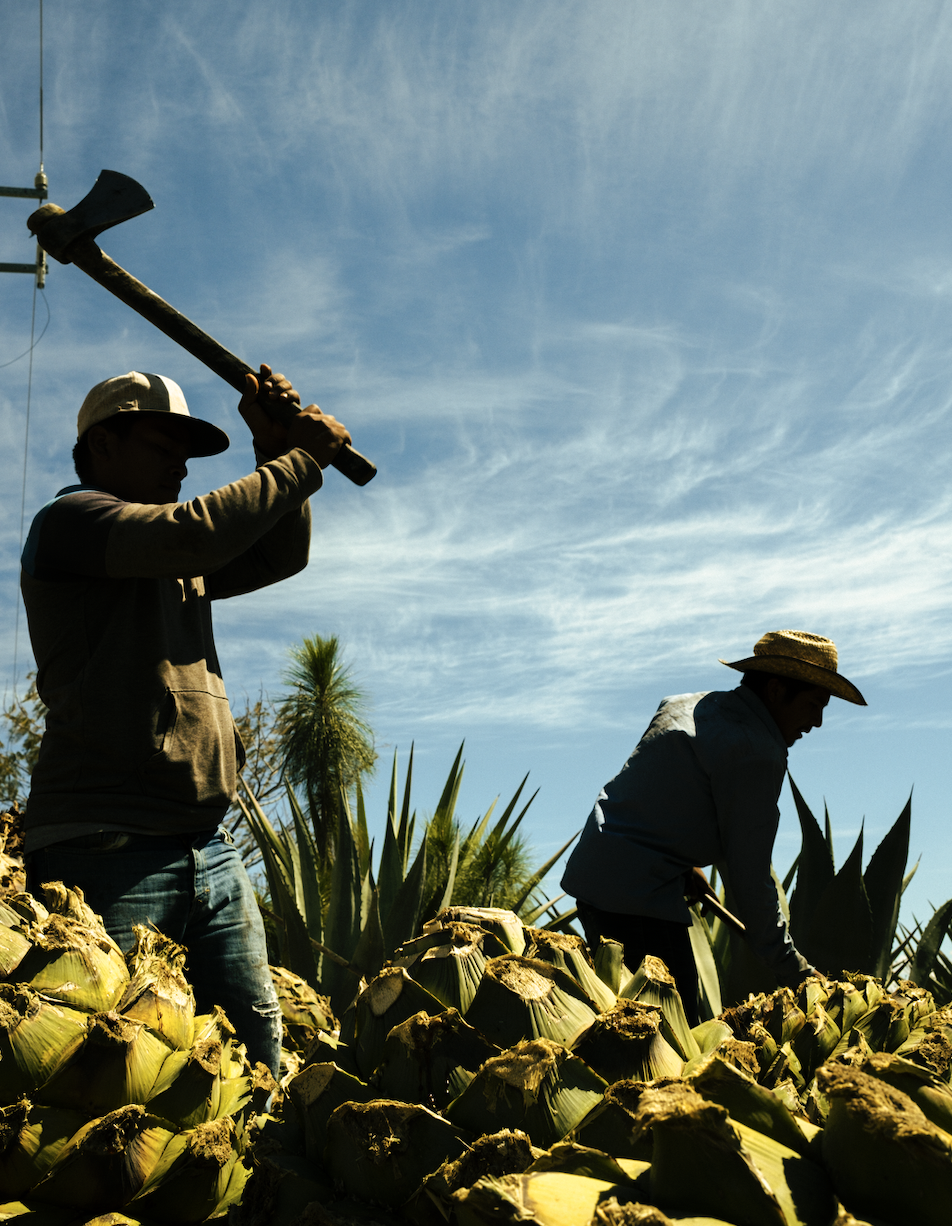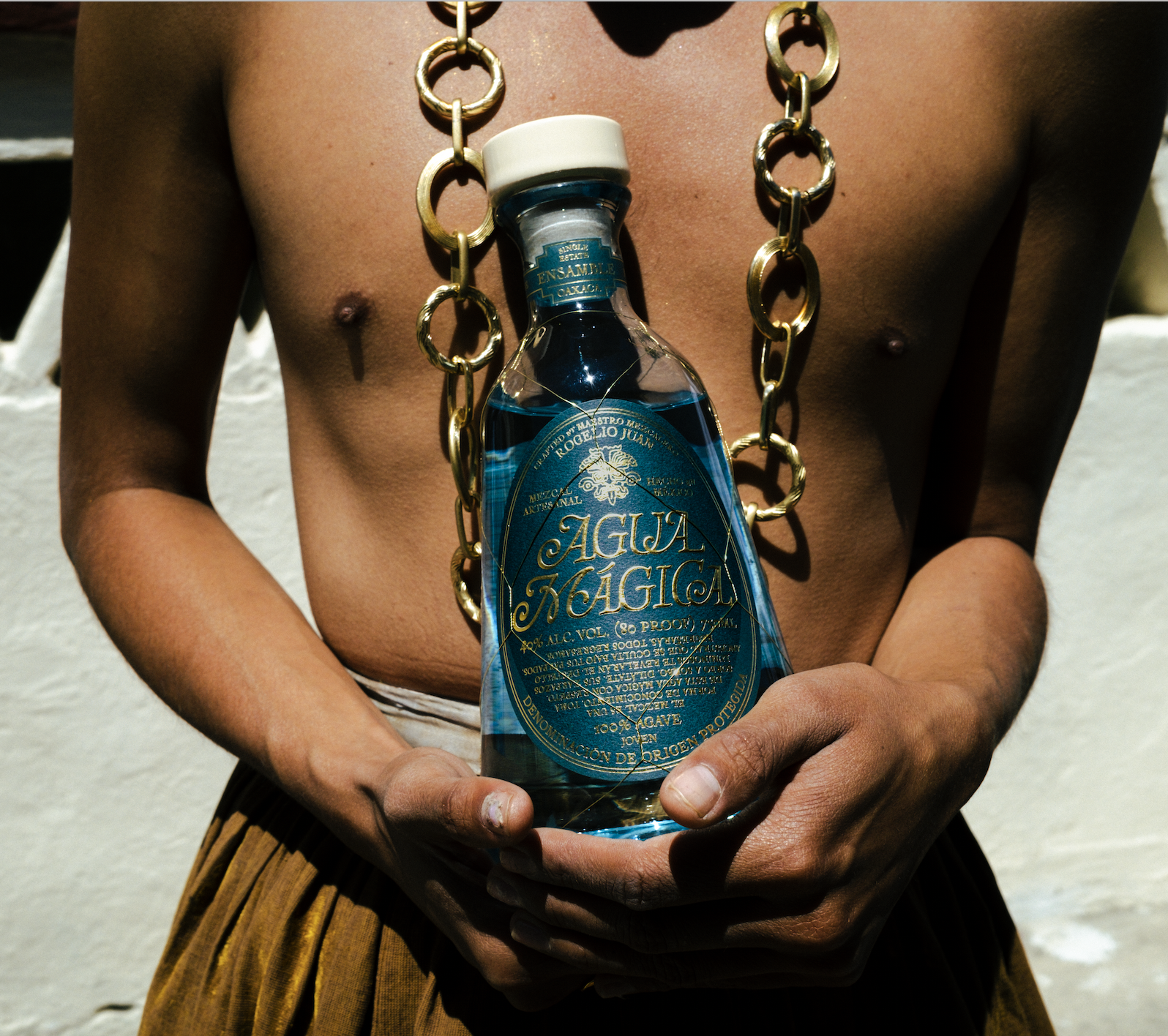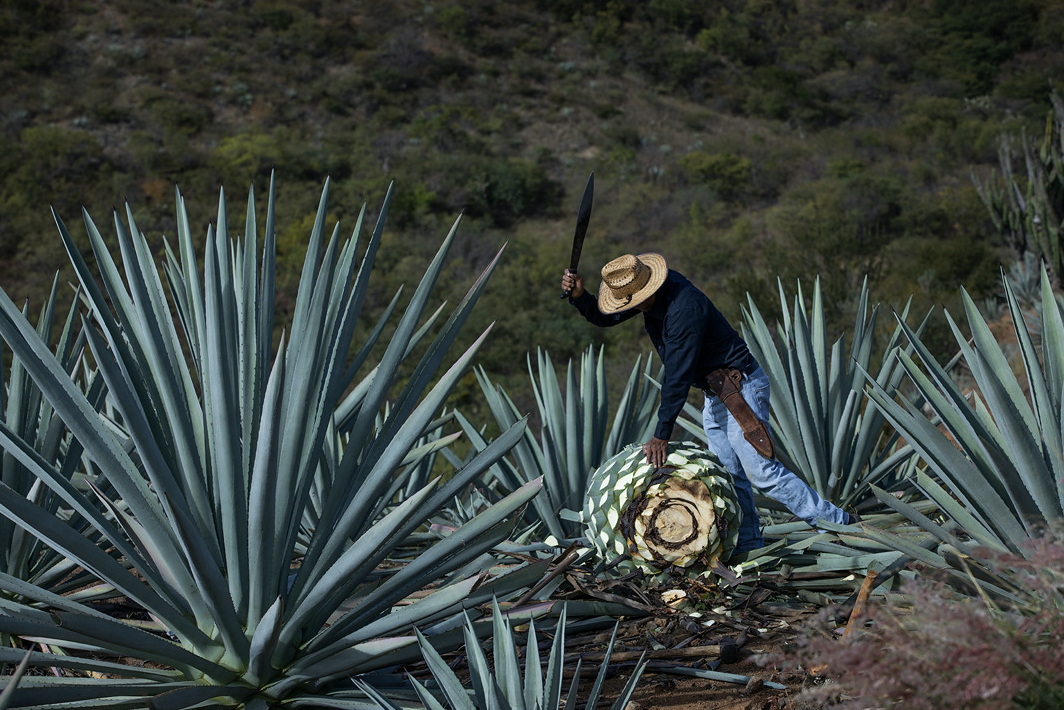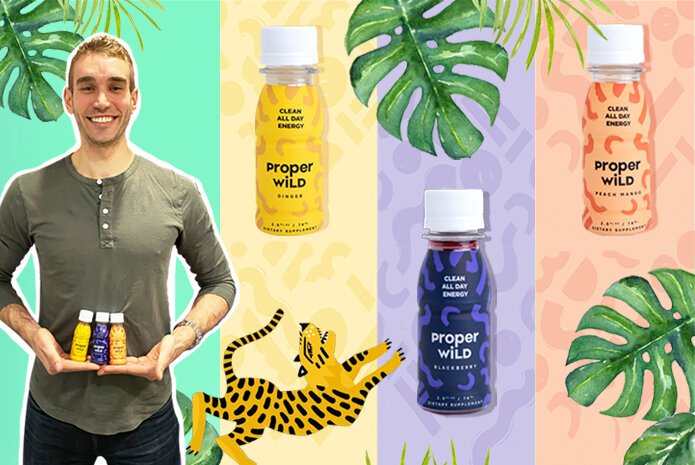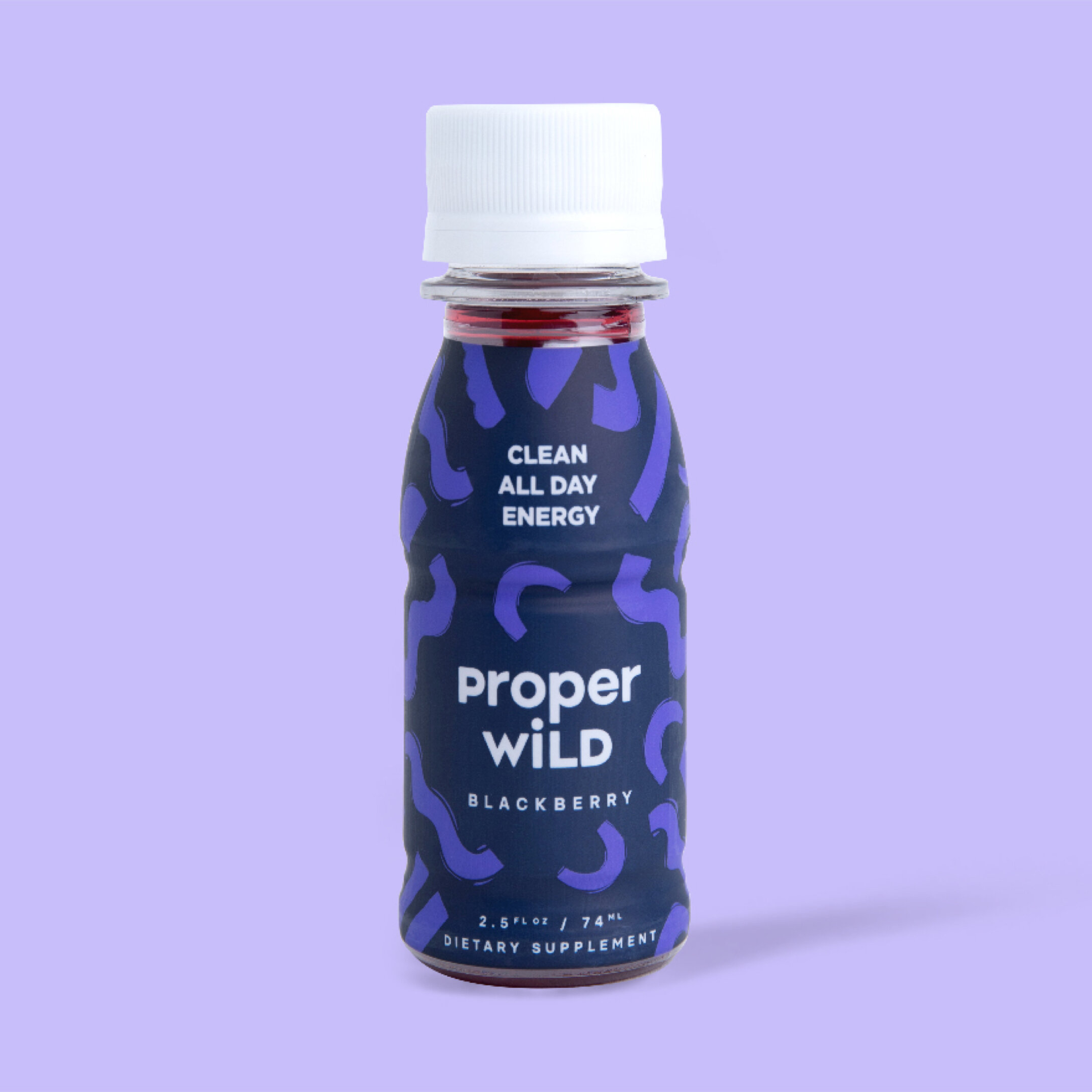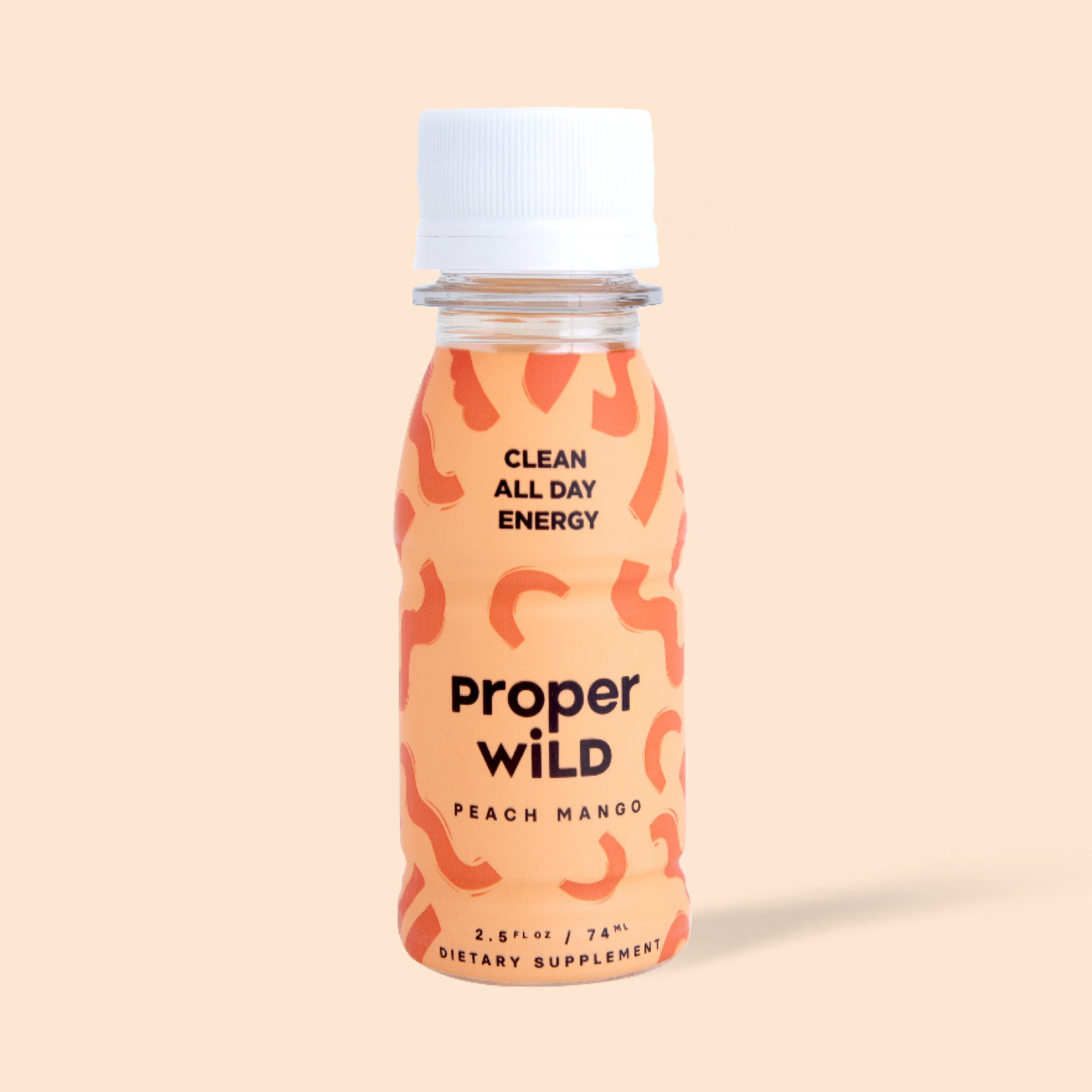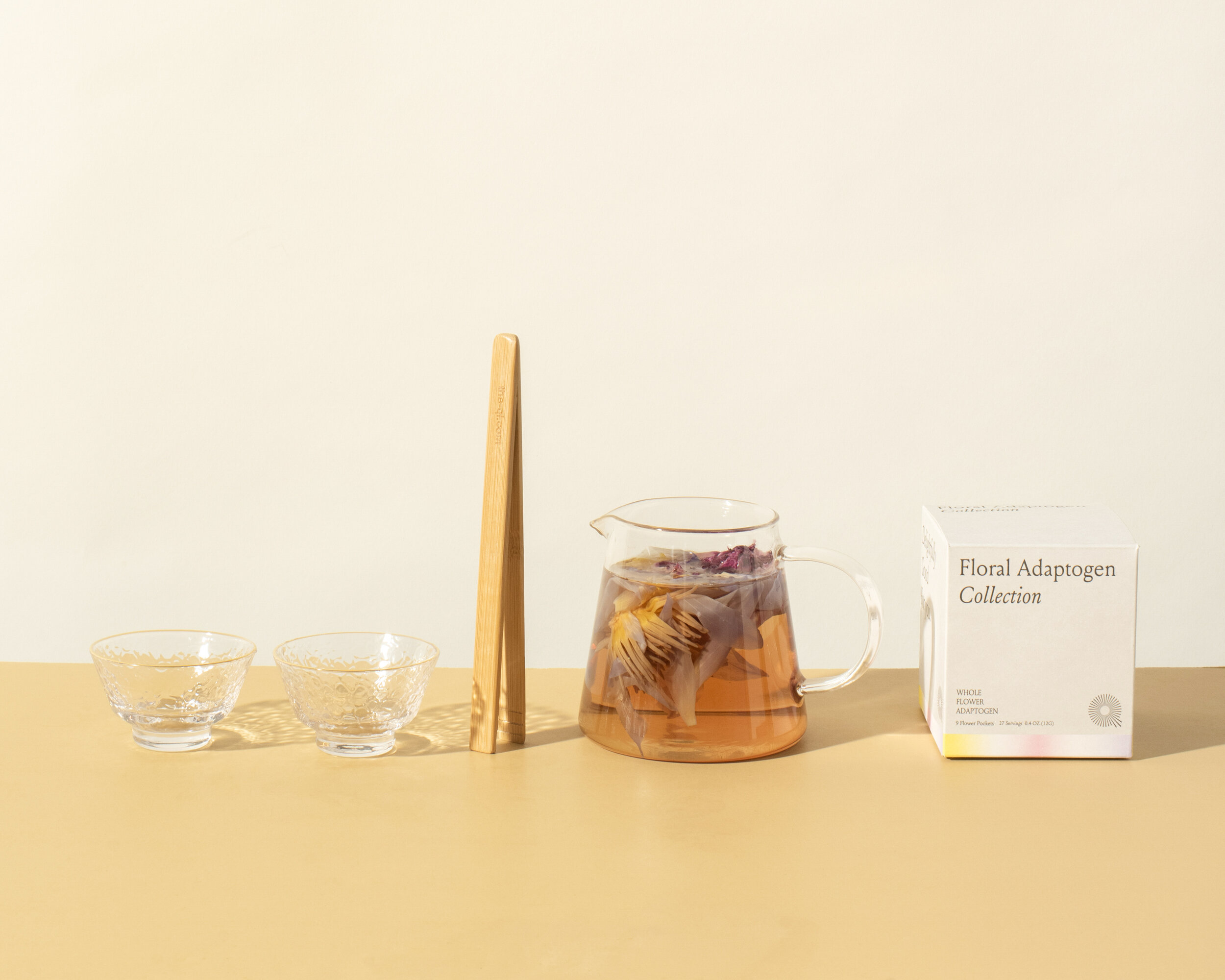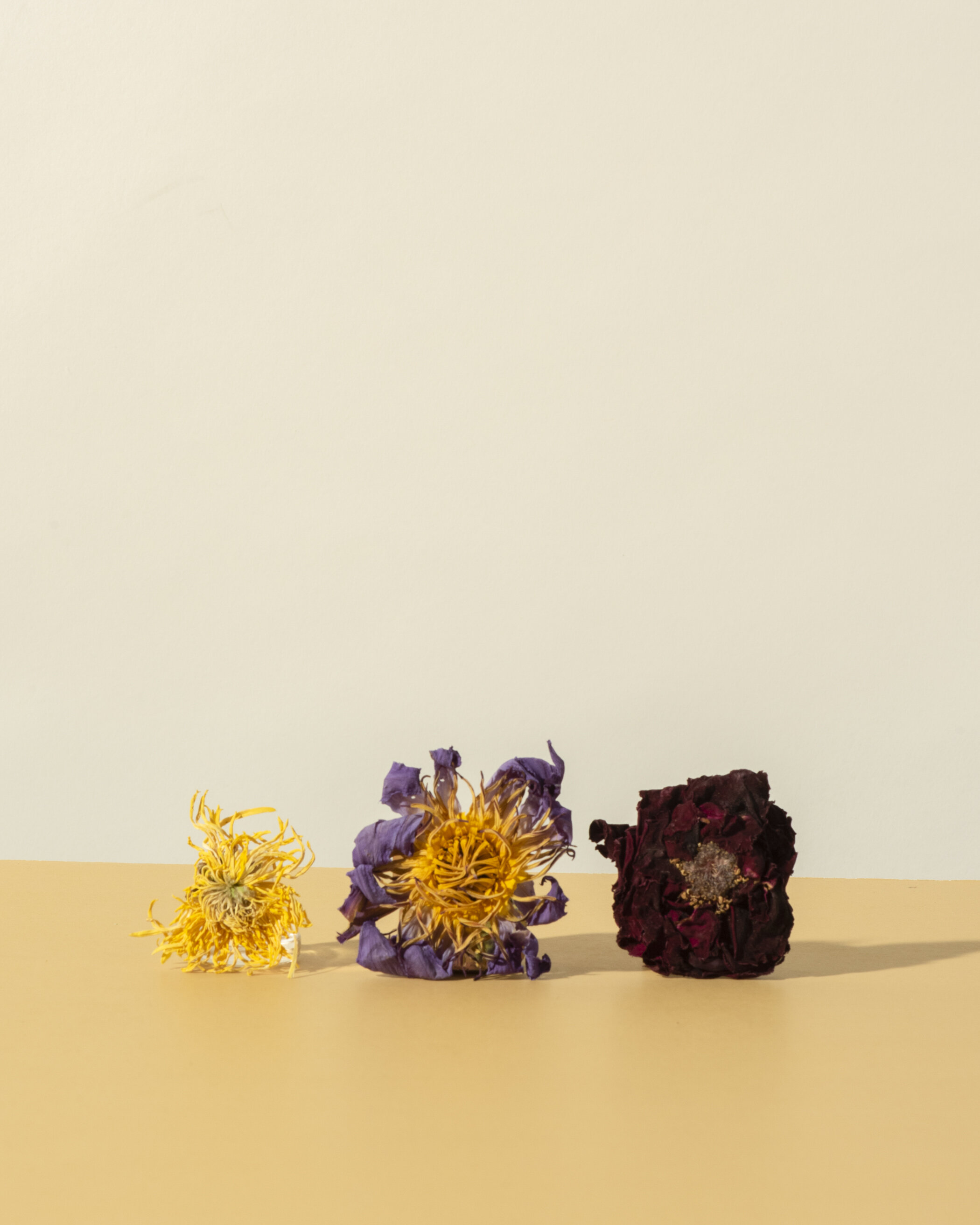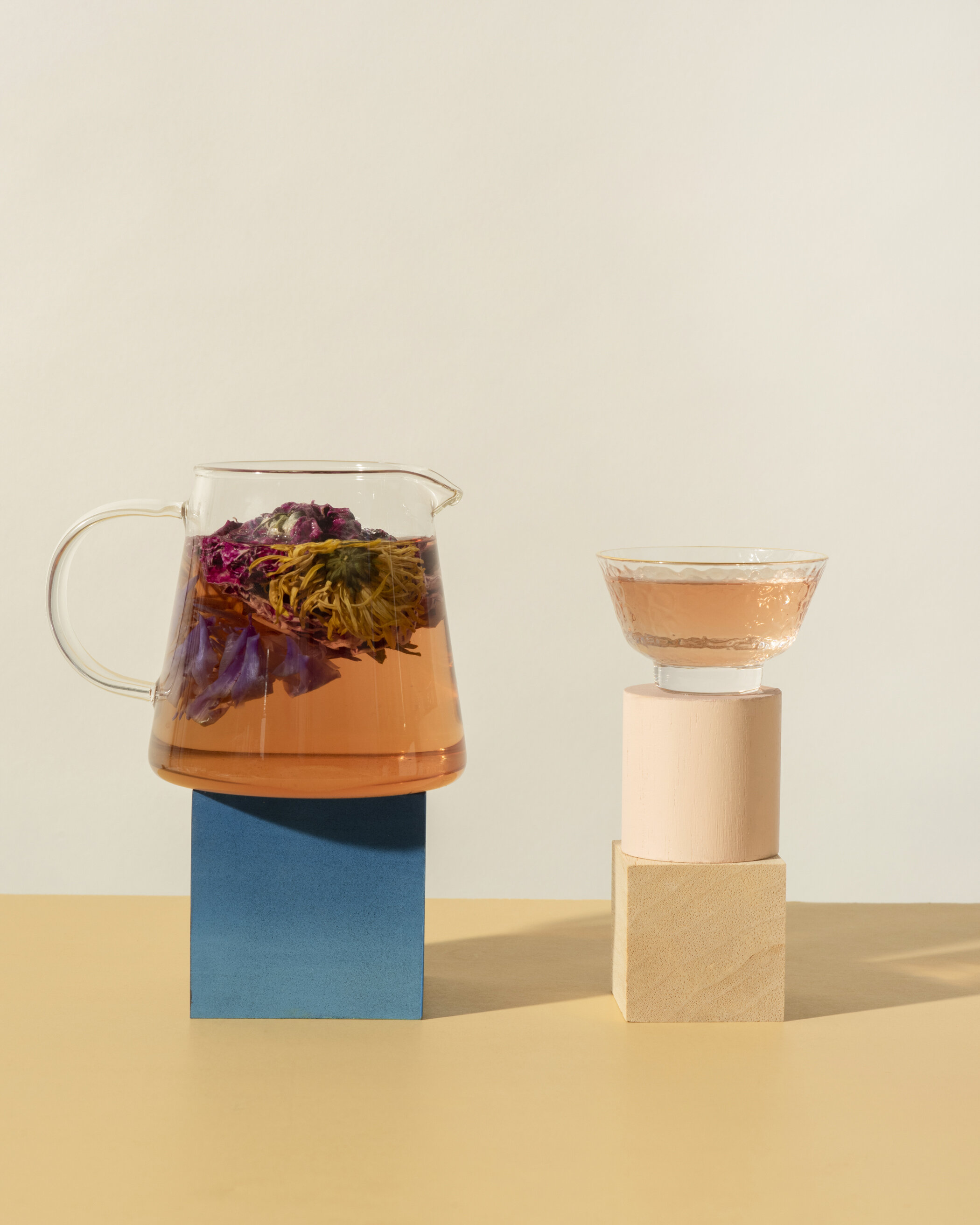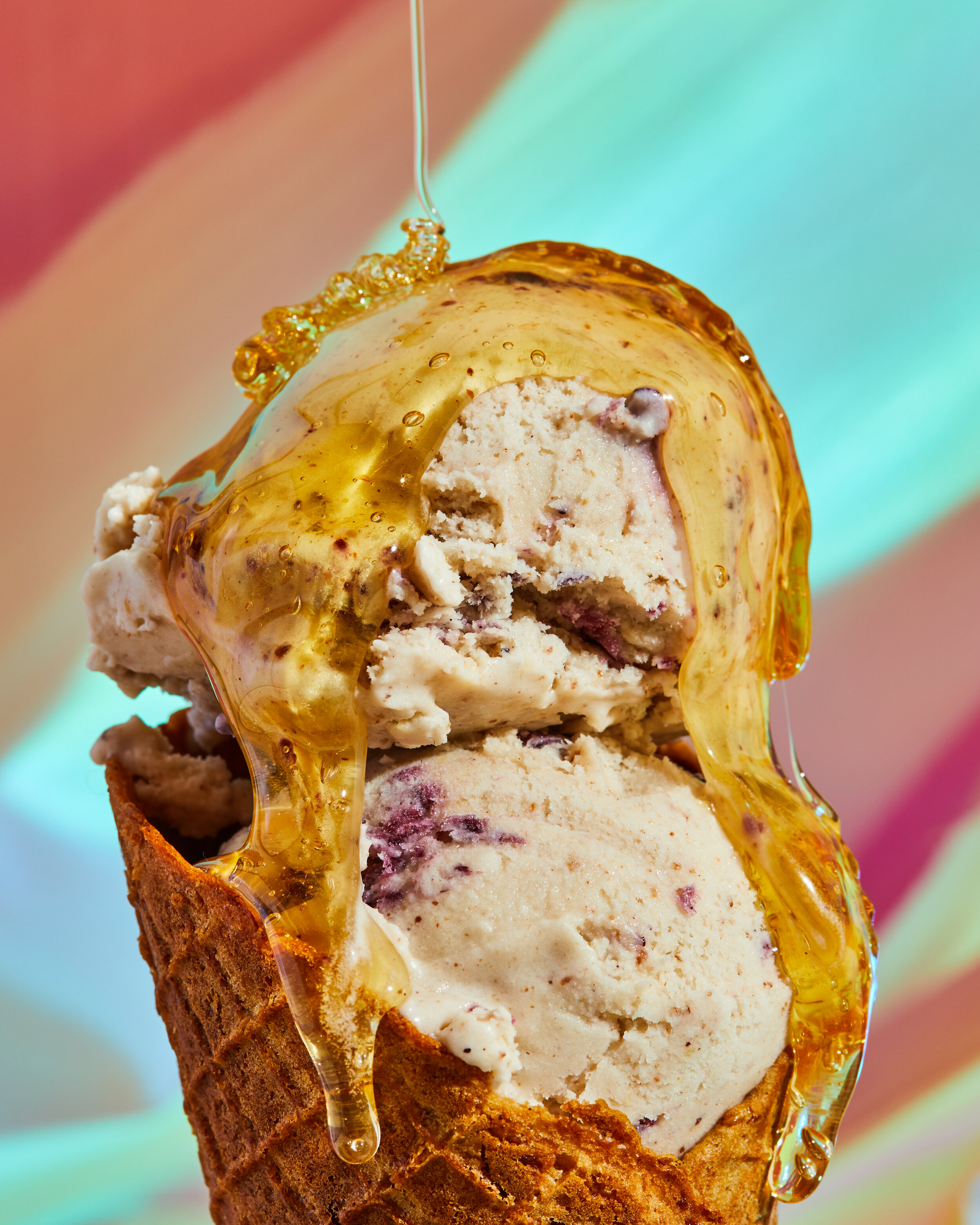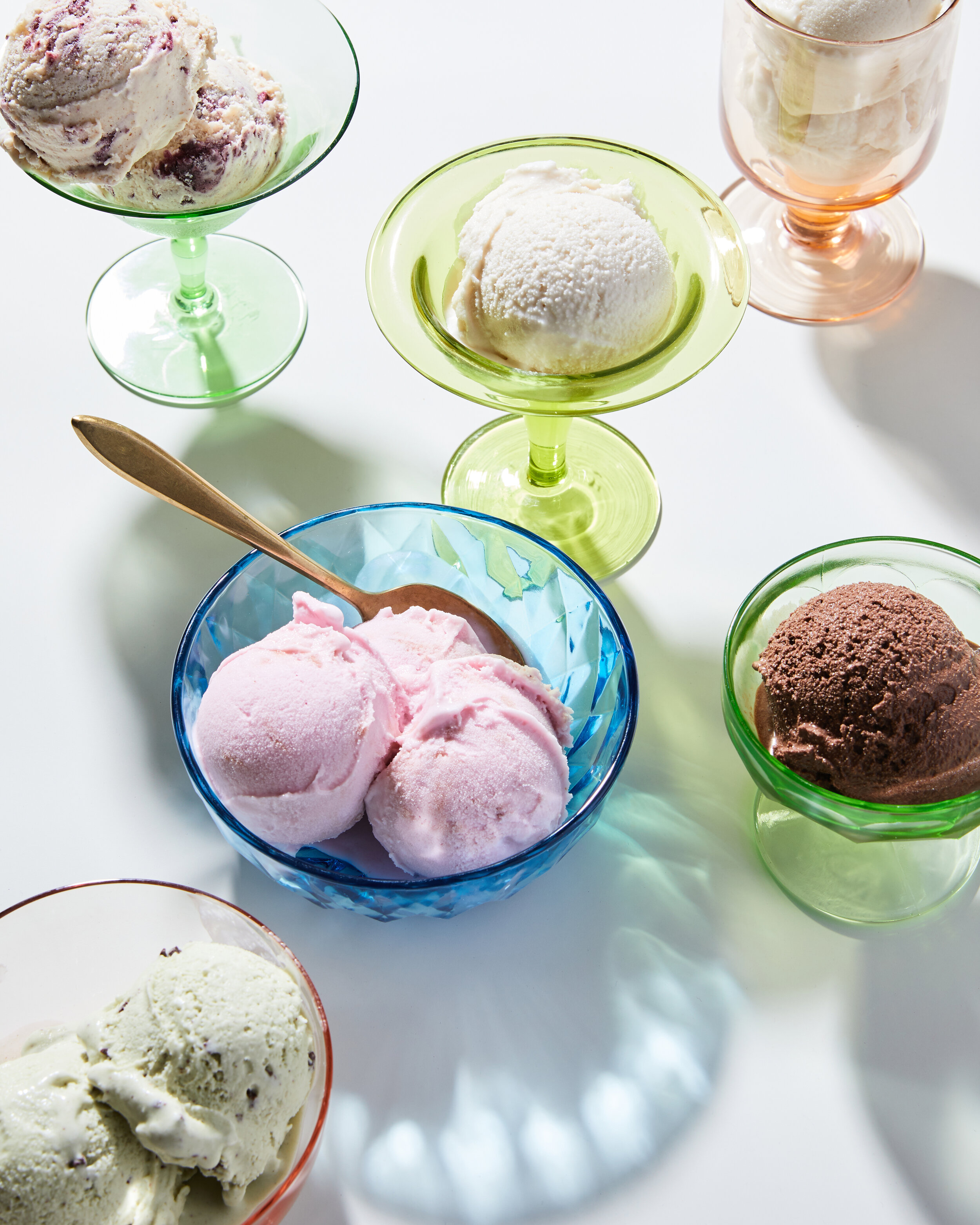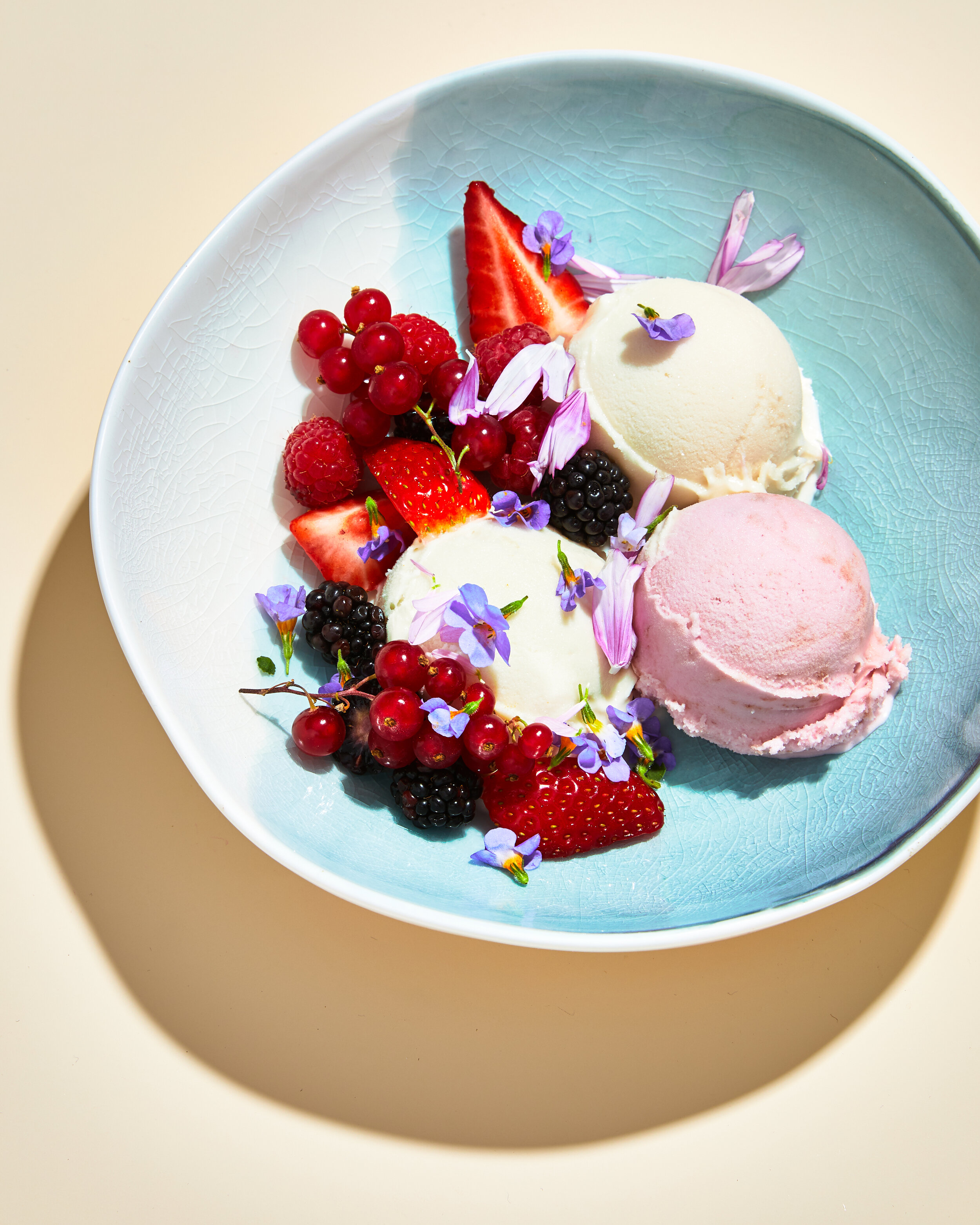AGUA MAGICA, RAFAEL SHIN: Sipping With Purpose
The US mezcal market is worth over $400 million as of 2021. You might have noticed that most tequila drinkers are making the switch over to mezcal this summer as palettes mature and novelty is celebrated. However, the high adoption of commercialized mezcal in cocktail drinks has led producers within the industry to cut corners and remove traditions when growing the agave crop. In hopes to preserve Mexican culture, specifically from Oaxaca, Rafael Shin launched Agua Magica, a premium mezcal to sip with intention.
You might have noticed that most tequila drinkers are making the switch over to mezcal this summer as palettes mature and novelty is celebrated. The US mezcal market is growing and is currently valued at $400 million. However, the high adoption of commercialized mezcal in cocktail drinks has led producers within the industry to cut corners and remove traditions when growing the agave crop. In hopes to preserve Mexican culture, specifically from Oaxaca, Rafael Shin launched Agua Magica, a premium mezcal to sip with intention.
As recent mezcal drinkers, we got the chance to catch up with the founder of Agua Magica, Rafael Shin to chat about his love for Mexico, and boy does he love Oaxaca! Based in New York City, Rafael received his MBA from Wharton and graduated with classmates and friends who ended up launching companies such as Warby Parker, All Birds, and Harry’s. Talk about having some successful friends, eh?
The Childhood
Founder, Rafael Shin surrounded by agave in Oaxaca.
Born in Seoul, Korea, Rafael moved to Mexico City when he was one, and considers himself to be Mexican. At the time, his parents wanted to explore a new country and were doing a master’s in Philosophy and Latin American History in Mexico. Unlike his partners, Rafael ended up choosing banking as a career upon graduation. “I started my career in investment banking, then moved into consulting, and did equity research at Morgan Stanley for 7 years with a focus on consumer goods companies and spirits before quitting and deciding to jump into the unknown with mezcal. That was my aha moment, being able to see the growth of the mezcal spirit category from a financial perspective” says Rafael.
With over 800 mezcal brands in the market, Rafael felt that he had a competitive advantage based on his childhood and research capabilities. “ I have been traveling to Oaxaca for over 32 years and every time I would go I would discover something new. It’s a very magical place. You have more than 90 dialects spoken and one-third of the population speak some sort of language. It is very untouched in many ways. The people have their own traditions, language, and economic system of how things should work. My best friend since the age of 8 also lives in Oaxaca” says Rafael. Fun fact: Rafael tried mezcal for the first time when he was 13. Chin, chin!
“The mission of our company is to redirect the growth of mezcal and preserve the local communities.” - Rafael Shin.
Launched in May 2021, Agua Magica is a premium mezcal brand that wants to educate consumers on the heritage and traditions of mezcal drinking as well as on the people of Oaxaca. Priced at $65 for 750 ml, Agua Magica can be purchased online or found at specific specialty stores alongside restaurants such as Cosme and Atla. Some of their most popular marketing highlights include partnerships with Soho House Miami, LA, and NYC as well as focusing on liquor stores that have partnerships with Drizly. Their social media explores the untouched parts of Oaxaca and immerses users into its culture, making you feel like a local.
It took the team over two years from ideation to launch and most of that time went into developing the brand, packaging, and taste. For those wondering, Mythology is the mastermind agency behind Agua Magica’s look and feel. “We wanted someone who understood the American market as most of the talent we used to develop the brand was from Mexico. We had a Mexican director, Mexican team, and needed someone to help us translate everything to be more digestible in both the US and Mexican market.”
As for product development and taste, it took Rafael over 2 years to also find a producer and conduct market research. “I met between 80 to 90 producers in Oaxaca and tasted 4-5 different expressions per producer. I would bring back bottles from Mexico to NYC for my friends and have bartenders try it to offer feedback.” Rafael was able to raise a little over $3M from friends and family via a concept pitch deck, pre-product to support his dreams.
“People have a perception that mezcal is too smoky, but that is not true.”
“Most of the mezcal in the US is smoky because it was introduced via cocktails and needed a way to differentiate itself from tequila. But, the reality of it is that mezcal is so diverse. There are more than 25 different species of agave you can use from nonsmoky to very smoky. We source our agave from the region of San Juan Del Rio in Oaxaca where the agave grows with a steep inclination that doesn’t let the rain accumulate. We use Espadin agave which takes 7-8 years to grow and Tobala agave which takes 15-16 years to grow. That is why it is hard for us to justify putting our mezcal in a cocktail because of the duration it takes to produce this specific type of agave.”
Rafael wants to be able to recruit new consumers to the mezcal category. The ones who prefer to sip it on the rocks, discuss its history and notes while debating the philosophies of life. And the taste? Well, we were able to try it and define it as a smooth, sweet, not boring, but a well-rounded finish of goodness. Best recommended being drunk straight from the bottle!
What’s Wrong With The Industry?
“How you drink mezcal has a huge impact on the farmers in Oaxaca and how the agave is grown. If you drink it in a cocktail and mix it with other ingredients, a bartender will want the cheapest mezcal in the market. This causes them to go to Oaxaca, shop for the cheapest mezcal which creates a price-war within producers which then causes a cascading effect for producers to cut corners, cheat and not care about preserving traditions. The more we drink mezcal in cocktails, the more commoditized the problem becomes.”
“Conserving the community of Oaxaca and giving back to preserve their culture and language is of the highest importance to me.” Oaxaca produces some of the world’s best agave and it requires a premium price point.
The Advice
For those looking to launch a spirit company, Rafael shares his advice with us.
The gross margin for spirits typically ranges between 40%-70%.
Put a lot of emphasis on research, design, product development, and distribution.
Be humble and understand that you are going to be wrong many times.
Culture is everything! Think about how you want to design your culture from day one.
Always think about how you can add value to other people (investors, producers, customers) especially as it relates to sales.
Best business book to read: Principals by Ray Dalio. It’s more of a mindset for life.
Support the traditions of Oaxaca and sip with intention, speak with confidence. Perfect for gifting, hosting, and seeming chic, Agua Magica can be purchased here.
Photo courtesy of Agua Magica.
Written by Alysha Malik.
PROPER WILD, VINCENT BRADLEY: The Clean Energy Shot
The world expects a lot out of us humans, competing with machines. We strive to be better in every way but constantly need some sort of energy boost to keep up. Enter Proper Wild, a new line of clean energy shots by founder, Vincent Bradley. The shots, a newcomer in the rapidly growing nootropics market, estimated to be worth $5 billion by 2025 offer a healthier, cleaner, more sophisticated alternative to existing energy drink brands that are associated with music festivals and adrenaline junkies rather than meeting rooms.
The world expects a lot out of us humans, competing with machines. We strive to be better in every way but constantly need some sort of energy boost to keep up. Enter Proper Wild, a new line of clean energy shots by founder, Vincent Bradley. The shots, a newcomer in the rapidly growing nootropics market, estimated to be worth $5 billion by 2025 offer a healthier, cleaner, more sophisticated alternative to existing energy drink brands that are associated with music festivals and adrenaline junkies rather than meeting rooms.
We caught up with the Founder and CEO, of Proper Wild, Vincent Bradley pre-pandemic to chat about why he started the company. Let’s rewind back to when President Obama signed the JOBS (Jumpstart Our Business Startups) Act into effect in 2012, private companies could suddenly raise capital in all-new ways and Vincent was paying close attention. With a tech investor friend and mentor, he started FlashFunders, a tech-enabled investment bank in L.A. that would hire a total of 50 employees and raise hundreds of millions of dollars for hundreds of companies. In an effort to keep up with the demands of this fast-paced business, Vincent started drinking caffeine religiously but wasn’t happy about it. “I was drinking coffee and it was no longer doing anything for me,” he says. “I was getting migraines and I was getting super jittery and it was hurting my stomach.”
As an elite hockey player, Vincent had worked with a nutritionist, which gave him a lifelong awareness of what he was putting into his body. If he was going to enter the health and nutrition space, he was going to do it as cleanly (without preservatives and synthetics) and as efficiently as possible. “I'm very much about maximizing my day,” he says. “I’m really organized and very efficient and very process-oriented. But I started to realize that I wasn’t very efficient about what I was putting into my body. I started to think about healthy, organic, plant-based alternatives that could make us more efficient throughout the day.”
Proper Wild launched in 2018 as an all-day clean energy shot. They are competing against Red Bull, Monster, and 5 Hour Energy. The product comes in three flavors, blackberry, peach mango, and ginger, and are sold in packs of six for $3.99 a shot with only 25 calories! You also won’t find any preservatives or artificial sweeteners in the drink. Proper Wild is vegan, gluten-free, GMO-free, and dairy-free.
“By talking to our customers, we've learned things that we didn't originally think were that important,” Vincent says.
When it comes to their target market, women actually make up the majority of their consumers by a small percentage. “We’ve gotten a lot of feedback like, ‘I feel embarrassed bringing a Red Bull or 5 Hour Energy or Monster into my office’ and 'other energy drinks really hurt my stomach.' These weren't any value props that we thought were that interesting, but the campaign copy that drastically lowered our CAC was around ‘the energy shot for adults.’ I won't use customer names, but we interviewed a customer who is very high up at the Federal Reserve Bank very early on who felt embarrassed bringing Red Bull into the office. He's 55 years old and he was like, ‘You know, your brand is definitely younger, but it feels much more credible to me.’”
Furthermore, Vincent tells us how “you need to have really engaging, creative, multiple landing pages; it's not about throwing money at paid ads”. “You need to throw money at paid in parallel with influencers, in parallel with content, in parallel with the press. You really have to take that approach to it and you have to be very, very, very driven because it's so easy to spend money in the wrong direction really quickly.”
The Product Creation Process
“Talking to people was really important to us. We looked at creating a powder, and pill. I didn’t feel comfortable taking pills or carrying pills around. I don’t like pills. Powders on the other hand are very time-consuming. You have to pour them and mix them. And then shots, you take them on the go. They work 20 to 30 percent faster than a pill or powder, and your body absorbs it at a much higher rate. We interviewed 5 to 10,000 customers over a 6 month period. We literally walked around SoHo, NYC, and would approach people on the street and be like hey, can I give you a dollar and ask you a couple of questions. We also gave out a $20 Amazon gift card for surveys and ran ads to collect emails for video interviews. We would walk users through our wireframes, product concepts, and just about anything.
Vincent took it upon himself to navigate the production process and identify the flavor house and manufacturer he was going to work with. In fact, he even spent one week hanging out with them to learn the ins and outs. One of the challenges he faced was the shelf-stability of the active ingredients. “What we found out is that Rhodiola root and a lot of the actives such as mushrooms have no stability at a low pH. They burn off.” However, Vincent was able to solve this problem, making Proper Wild’s active ingredients truly efficacious. Fun fact: if you see a beverage that doesn’t have any preservatives in it, it is hot-filled.
The Childhood
Founder and CEO, Vincent Bradley.
If you ask Vincent where his industrious spirit comes from, he’ll launch into a story about his great-grandfather, “Black Bill” Tocco. “He came over on a ship from Sicily when he was 12 years old,” the story begins. “He became the largest bootlegger in the United States during prohibition in Detroit, and he was the head of the Detroit Mafia. My grandfather, ‘Black Jack’ Tocco, later took over for him. [Self-starting] is in my DNA.” Vincent has exercised his own entrepreneurialism since puberty when he founded Neighborhood Odd Jobs, surely making Grandpa Bill proud of what would come to be the racket of every young suburbanite’s dreams. As the 12-year-old CEO and founder of this venture, Vincent hired friends on his block to mow lawns and paint houses, raking in $30k during summer breaks. Though Vincent was born in Boston, the entrepreneur grew up primarily in Michigan—and it’s to this combination of locales that he attributes both his flat (what he calls “funky”) accent and his eventual pull to the East Coast, where he would later found Proper Wild, after years spent immersed in the L.A. tech scene.
Vincent attended the University of Michigan, pursuing an interdisciplinary degree that covered equal parts biological anthropology, entrepreneurship, economics, and art history. Of his academic pursuits, he says, “It was a very diverse background, which is kind of my skill set as an entrepreneur. Product, design, marketing, sales.” While in school, he found success setting up websites for small businesses including his mother’s private medical practice—a precursor to tech-heavy post-grad jobs including product marketing at Graphiq, where he learned how to grow tech teams while broadening his skills as a front-end engineer (talk about being a hustler!). But like most of our Makers, it would take Vincent another couple of software jobs—and one major failure with a would-be gaming site that raised $1 million but couldn’t get off the ground—before the bold leap into CPG with Proper Wild.
The Advice
When one of his early ventures failed to take off, Vincent learned the hard way that strong businesses start with strong research and a clear sense of who you are and what you’re able to add to the market. That is why it is important to really get to know yourself via therapy, or reflection to truly understand your strengths as an individual. Rather than fine-tuning your weaknesses, you should double down on your strengths! In fact, as a boss, you should be hiring for your weaknesses. Vincent shares his advice for those looking to start a CPG brand with us:
Before starting a business, take your time to figure out if that business has legs. Go talk to a ton of customers in the streets, via Facebook campaigns, or even with Kickstarter and Indiegogo.
Don’t micromanage! Hire smart people and let them do their thing.
Stay focused on your business, your initiatives, and track everything you are doing. Don’t chase a bunch of shiny objects and go in the wrong direction.
Proper Wild recently closed a $3M seed round and has grown over 600% since March 2020. They will be rolling out nationally into retail with 12,000 convenient stores in South Florida starting in November. Feeling the caffeine crash and want a little pick-me-up in your day? Shop Proper Wild here.
Photo courtesy of Proper Wild.
THE QI, LISA LI: Organic Flower Tea
Did you know that tea drinking dates back to 2732 BC when a Chinese emperor discovered the concept after some tea leaves blew into his boiling pot of water? It’s true. With a market size of $13 billion, tea is a global good today. But, the majority of teas do not provide customers with a unique experience, that of a flower blooming in your cup as you sip. Welcome, The Qi, an organic whole flower tea brand that is elevating the at-home drink.
Did you know that tea drinking dates back to 2732 BC when a Chinese emperor discovered the concept after some tea leaves blew into his boiling pot of water? It’s true. With a market size of $13 billion, tea is a global good today. But, the majority of teas do not provide customers with a unique experience, that of a flower blooming in your cup as you sip. Welcome, The Qi, an organic whole flower tea brand that is elevating the at-home drink.
Born in Yingkuo, on the coastal edge of North-East China, founder of The Qi, Lisa Li grew up drinking tea. “My mother was a single parent and worked full-time. She is the main source of my inspiration and told me that you have to make the best with what you have. As a result, my grandmother raised me and I grew up surrounded by many herbal remedies and treatments from a young age. Back then Ginseng wasn’t known as an adaptogen, but just as a regular old herb. The soups that we had were what most westerns would call bone broth today” says Lisa.
Before the wellness trend hit the Western market, Lisa lived her life surrounded by traditional Chinese medicine as a way of life instead of a solution to a problem. At the age of 14, she moved to Vermont with her mother who opened up a dumpling restaurant. Lisa later attended Bentley University for undergrad and got a job in accounting, which she hated and eventually made her way to the fashion industry, working for Gucci after attending Parsons University.
“I was never an A+ student, like your stereotypical Asians. School was fine, but I never liked to learn from books.”
Fast forward to 2017 and The Qi (pronounced the chee) was born. Qi means life force or life energy in Chinese. The Qi is an organic flower tea brand with food-grade quality. Customers can purchase 3 types of flowers: rose, lotus, and chrysanthemum alongside accessories such as glass mugs, glass pots, bamboo tongs, and more. The Qi wants to elevate your at-home tea drinking experience and takes design very seriously.
The Aha Moment
“I was feeling burnt out and wanted to start something in the tea category, having grown up around herbal remedies my entire life. I went on a trip to Shangri-la with my mother and found a remote village where 90% of Asia’s teas originate from. At the time I thought I wanted to launch a caffeinated tea brand rooted in green tea or black tea. However, I came across these roses that the locals drink as a tea and eat as a delicacy. I found the experience to be so transformative and beautiful that I felt a responsibility to share it with the world.”
Tea is very similar to wine, in the sense that it is very complex. Lisa went out to set up her supply chain in this tiny village in China, near Tibet where the flowers grow 10,000 ft above sea level. Each flower sold on The Qi is sourced from a different farm. She was able to meet these farmers by attending the local flower market and developing a relationship.
“By using third party testing we almost went broke and closed our doors before even opening, but the end result is worth all of the effort.”
The hardest obstacle Lisa faced was finding a farm that grew flowers that were edible and free of pesticide since many farms didn’t have the money for testing and obtaining official certifications. Lisa tells us how “you need to have food grade quality flowers with organic standard flower tisanes. The biggest surprise was learning what went into getting an organic certification. The flower tisane category doesn’t exist in the USDA directory, which meant that each flower had to have zero traces of pesticides for us to call it organic.” Fun fact: the pesticide threshold for caffeinated teas is below 0.5%.
“Many people buy our products as gifts.”
Functioning on a bootstrapped budget, Lisa engages in organic, grassroots level marketing. “We do a lot of giveaways, collaborations with influencers, and email sign-ups. I find that the digital advertising space gets very expensive, you need to pay to play and if you don’t have the budget, it is hard to get a good return.”
Instead, The Qi has exhibited at tradeshows such as Shop Object to land successful retail partners such as Anthropologie and Bloomingdale. Pre-COVID majority of their sales were coming from these wholesale accounts, but now things have shifted towards their website with bigger margins (snaps).
The Advice
Every founder has their own advice for those looking to launch a business in this digital world we live in. Lisa mentions that:
You should constantly manage your cashflow and prioritize what is truly important to move the needle forward.
Invest in PR, but make sure whoever you hire has a track record as your money can go down a black hole very quickly with little returns.
Everything happens for a reason and nothing is by accident. You should be aware of your personal journey and the space this world holds for you.
You need to be extremely passionate about what you are doing as this will become your obsession for the next couple of years and you don’t want to get burnt out.
Born on the leap year (Feb 29), Lisa tends to work seven days a week, but will take the day off bi-weekly to engage in cooking, playing with her dog in the park and reading. Her favorite brands consist of Nike, Patagonia, and Billie.
If you are curious about the benefits of flower power or are looking for a great gift idea, shop The Qi here and mention “radiche15” for a 15% discount.
Photo courtesy of The Qi.
Written by Alysha Malik.
SUNSCOOP, CARLI BLUM: Vegan Ice-Cream Becomes a Reality
In a recent study, more than 54% of the US population was reported to react positively to one or more allergens. As our population increasingly becomes more sensitive to what they are putting on and in their bodies, brands need to adapt and cater to new segments. Welcome, Sunscoop, a vegan, allergen-friendly ice-cream brand fulfilling your craving one flavor at a time.
In a recent study, more than 54% of the US population was reported to react positively to one or more allergens. As our population increasingly becomes more sensitive to what they are putting on and in their bodies, brands need to adapt and cater to new segments. Welcome, Sunscoop, a vegan, allergen-friendly ice-cream brand fulfilling your craving one flavor at a time.
We caught up with Carli, Blum, the founder of Sunscoop, a vegan, plant-based, dairy-free ice cream brand. Yes, you read it correctly, dairy-free ice cream. As an ice cream lover myself I had to try out the product before interviewing Carli for this feature. The review? I absolutely loved it! Not only is Sunscoop the perfect match for those with IBS and other inflammatory conditions, but it is also low in calories and does not contain any refined sugars. Win, win, win!
“I suffered from food allergies my whole life and realized that there was no one doing vegan, plant-based ice cream that was allergen-friendly, and tasted good”, says Carli.
Having grown up in San Diego to a family of Doctors, Carli never imagined herself following the medical path. Instead, she took a more creative route and graduated from the Fashion Institute of Technology with a major in Marketing. It wasn’t until 2016 that Carli thought about launching an ice-cream company, but we’ll get into that shortly. Her early career involved working in the fashion industry as a stylist at Nordstrom. “School was never really my thing. I always got experience from working and was very creative in how I went about getting jobs. I literally walked in Nordstrom’s in LA and got myself a position as a wardrobe stylist. However, I quickly realized that fashion wasn’t my calling and that food was my purpose.”
The Aha Moment
Carli left fashion to go and find herself in Bali (like many of our other founders) in 2016. At this point she was building an app with the former editor of Lucky Magazine to recommend specialty items that match with your basic clothing. “We would partner with retailers to help you build your wardrobe with pieces you already owned. I was very successful from a sales perspective but found myself more interested in what women were eating versus what they were wearing. I left the company to explore Bali and was blown away by the plant-based options available. Given my allergies to soy, nuts, dairy, and gluten, I came across a vendor selling fresh coconut ice cream that I could finally indulge in. It was so exciting to finally be able to eat ice cream that I had an aha moment and wanted to bring this experience and product back to New York.”
“After doing some research, I discovered a woman out in Missouri who was sick and had to incorporate a plant-based diet into her life so she started selling coconut yogurt with cultured prebiotics at doctor offices and local food fairs.”
Carli read about this woman in the news and convinced her to join forces by establishing a co packing relationship. “She jumped on board immediately. That’s how I produced my original product, which was a cold-pressed coconut cream soft serve.” Carli launched in 2017 under the brand name of Koku after raising $125,000. “I had a lot of people tell me I would never be able to do this because I did not have the operational skill set needed, but I was very determined to make this happen.” She hired a COO from a D2C consumer company who helped her hire talent, fundraise, and set up operations in the early days. However, they ended up splitting ways after a year and a half.
On Testing the Idea
Instead of launching D2C, Carli wanted to gain traction and validate her business hypothesis. As a result, she launched Koku at Smogasburg during their 2017 summer fair (for those who don't know, Smogasburg is a food fair where all the foodies conjugate to experience new tastings).
“We got published in Well + Good and sold out by 1 pm on the first day of the event! The next day we sold out by 3 pm and kept selling out week over week. Towards the end of Smogasburg, we were selling 700 cups a day and had two flavors, vanilla tart, and dark cacao.” Next stop, Sweetgreen! “I got invited to partner with Sweetgreen over the summer for their pop-ups in 6 locations.”
Wanting to prove traction a step further, Carli launched a pop-up at Bowery Market for one week to gather additional feedback. “Buzzfeed covered us and from the PR video, it was very clear that we were creating something meaningful.” Fast forward to modern-day and Koku has been rebranded to Sunscoop due to trademark issues, but to also tell a better story and create a striking new identity. Sunscoop can be found in over 150+ stores across the Northeast, including all Whole Foods. Talk about nailing down their distribution strategy!
“You can’t be everything to everyone.”
When it comes to the obstacles of launching a CPG company, it all comes down to your product and manufacturing. Carli tells us how she originally launched the product with raw honey and received a lot of feedback on customers wanting the product to be vegan. “We are now a hundred percent vegan.” In addition to product, Carli struggled with nailing down the manufacturing in the early days. “We had formulation challenges. I didn’t own the full recipe at first, big mistake! We also ran into a huge co-packing issue right before launching in Wholefoods and I had to find a new co-packer two weeks before our launch.” Luckily, she managed!
The Advice
With over 6 unique flavors, 170 calories per serving, and a robust distribution strategy, Sunscoop can also be found online. Although the journey was a long one, Carli’s success can be attributed to having determination and manifesting your beliefs. Her advice for those looking to launch a food and beverage brand:
Trademark your name right away!
Learn how to slow down. It is critical to get things right, especially in the beginning. You only have one opportunity to impress customers.
Create market validation before fundraising by pilot testing and proving out the concept. Unless you previously worked at a high-growth startup, Investors will typically not fund your idea.
Be patient and do not hire too quickly.
Manifest and visualize what success looks like for you and then turn that into a reality.
Follow Nosh for industry news on food and beverage.
Looking to taste the future of ice-cream? Get 15% off and free shipping this month when you shop Sunscoop online.
Photo courtesy of Sunscoop.
Written by Alysha Malik.
KIN, JEN BATCHELOR: The Underserved Drinker
The nightlife industry caters to only one type of audience: the alcoholic. For those who like to get jiggy with it under a sober conscious, your options are limited. From high sugary drinks to soda water with bitters in a boring glass, the bartender might as well give you a dunce hat to wear (hi everyone, it’s me, yup, not drinking tonight, don’t I seem fun?). It was this exact mindset that led Jen Batchelor to start Kin, a euphoric beverage company.
The nightlife industry caters to only one type of audience: the alcoholic. For those who like to get jiggy with it under a sober conscious, your options are limited. From high sugary drinks to soda water with bitters in a boring glass, the bartender might as well give you a dunce hat to wear (hi everyone, it’s me, yup, not drinking tonight, don’t I seem fun?). It was this exact mindset that led Jen Batchelor to start Kin, a euphoric beverage company.
Jen Batchelor grew up in Saudi Arabia to a father who was a bootlegger. “It was my first exposure to the entrepreneurial side in which my dad would brew his own moonshine, sidiki in our bathtub and became very interested in the distillation process. Growing up in this environment taught me what alcohol can do to bring communities together as well as what it can do to tear families apart.”
“It took me a year of building Kin to realize the impact of my ancestry in the brand.”
“When it comes to success, my mother had a very defined American point of view on what it meant to be successful, purely based on Hollywood. I strived to check all of those boxes and suddenly hit a turning point in my life where I wasn’t happy and realized that the corporate life was not for me. I ended up launching my own social media consulting agency and partnering with hotels for branded experiences as well as building a network of fitness and wellness influencers. At this time SoulCycle was promoting the whole detox to retox regime and it reminded me of the yoyo diets in the ’80s. Why did we have to live life in such extremes?”
On Finding a Co-Founder
Jen was introduced to former Soylent co-founder, Matthew Cauble by a mutual friend. (Tip: Go to as many entrepreneurial events as possible, you never know who you will meet). “We bonded over the wellness industry and how the drinking experience was broken. We wanted Kin to be about opening up a flow state and finding a new way to revel and #risewisely. We want to be at your local bar as well as something you gift when attending house parties.”
Matt took the lead on product development as Jen continued to build out the brand. (It took them 30 iterations of the product over 16 months to get it right!) In the beginning, Jen ran social media herself for the first year until finding our good friend, Larissa May to help with strategy and growth.
The Challenges
“Education has been our biggest challenge as no one is using the same ingredients as us.” Kin is a beverage that combines adaptogens, nootropics, and botanics. What are nootropics you might be wondering? Well, it’s been the big buzz word since 2018! Nootropics are supplements, drugs or substances that may improve cognitive function, particularly in memory, creativity or motivation.
“I don’t trust liquor stores to tell our story right now and therefore we obtain new customers by hosting euphorics workshops and tasting events. This made us realize that people wanted our product delivered to their door which explains our distribution model of D2C.”
“Look at everything you do from the perspective of the consumer.”
As a beverage company you need to can a feeling in order to set yourself apart from competitors. Kin is able to do this by hosting events and partnering with brands in similar spaces. “Social media continues to be the number one way to share organically and discover our brand. We did a happy hour at Glossier as well as an event with Bumble in the past. However, the real impact comes from when we chat with individuals one on one.”
Vogue has been Kin’s biggest advocate and the way they chose to tell Jen’s story has definitely had an influence on sales. Kin has never paid for any major press articles but has gotten it for free through Jen’s relationships and hustle. “If you’re looking to get press, the best way is to reach out directly to an editor and share your personal story alongside a fun tidbit that no one knows. This goes a long way! We then invite these editors to our events.”
The Advice
We asked Jen if she had $100K how would she spend it. “I would spend 80% on building the framework, story, band, colors, and product. It is pretty cheap to hack a formula together, but for us, it is more important that the individual who chooses to not drink is seen.” Jen furthers comments on how if you are looking to start a company you should:
Know that your unique perspective has the opportunity to change the world. We are going after the conscious creative. We were very intentional in making Kin a premium drink as we don’t want to appeal to 18-year-olds who are legally not allowed to drink alcohol.
Don’t be a copy cat! I am not a fan of people incorporating CBD into their products as a business opportunity.
Be unapologetic for who you are.
Go out and create from a place of no ego.
Kin is looking to make a dent in the alcohol industry. If you are interested in experimenting with sobriety and being seen, shop their products here. Don’t forget to check their website for events as they host pretty rad experiences!
Photo courtesy of Kin.
Written by Alysha Malik.
HYDRANT, JOHN & JAI: The Dehydrated Economy
America runs on Dunkin, or caffeine as most folks would refer to it as. In a sleep deprived world, 75% of Americans are dehydrated on a daily basis and resort to caffeine instead of water when they experience a headache, tiredness or need a mood boost. However, this is not the best solution for your body. We met up with our homeboys, John Sherwin and Jai Kim to discuss their journey leading up to the launch of Hydrant, an electrolyte powder for everyday use when water alone is not enough.
In an aisle where dehydration is often linked to diarrhea and infant related issues, co-founders John Sherwin and Jai Kim stirred up a new concoction, Hydrant that caters to adults in the health and wellness category. Or as we like to say, the cool aisle you would love to be caught in at WholeFoods!
America runs on Dunkin, or caffeine as most folks would refer to it as. In a sleep deprived world, 75% of Americans are dehydrated on a daily basis and resort to caffeine instead of water when they experience a headache, tiredness or need a mood boost. However, this is not the best solution for your body. We met up with our homeboys, John Sherwin and Jai Kim to discuss their journey leading up to the launch of Hydrant, an electrolyte powder for everyday use when water alone is not enough.
“We want to bring an approachable, cool brand to this space and empower consumers with knowledge about hydration and health. Hydrant is a lifestyle brand - one that people turn to at the gym, in the office, and after the bars.”
If you take a look at the hydration solutions currently available, they all seem to be missing a core component: product-market fit. For example, let’s look at Gatorade, an electrolyte drink marketed to athletes and sports enthusiasts, but consumed by mainly hungover white-collared men riding the subway and occasionally burping the alphabets. Or Pedialyte, a formula created for infants who experience a loss of nutrients due to diarrhea, is consumed by those still learning their ABC’s. John tells us how “there was nothing in the aisle that adults could use as a go-to solution for increasing their health and wellness when it came to dehydration. Not to mention, most of these products contain more sugar than is necessary! From an ingredient standpoint, Hydrant has 2x sodium, 8x the potassium as well as an infusion of magnesium and zinc.”
The Challenges
With production taking place in California, the biggest challenge for Hydrant has been bandwidth and speed. Jai tells us how “we have all of these plans that we share with investors, but the main challenge is to figure out the perfect product-market fit. You should never approach the whole market because then you are boring. Identifying who are your early adopters and focusing on a niche is key.” Jai also comments on how “the most painful dehydration used case occurs most frequently via the infamous hangover. So in a way that is where you want to be, but at the same time, the hangover space ends up being a tacky one linked to consumers feeling guilty. We want to be much more than just a hangover remedy.”
The Partnership
Jai and John met through a mutual friend and “dated” for six months before establishing their roles as co-founders and officially launching in August 2018 (seeds of the company were planted back in January 2017). While John grew up in the UK, Jai grew up in Boston and as fate would have it, both boys would become interested in the same topic at the exact moment. Jai tells us how “I was exploring a similar space when I came across Hydrant and decided to drop out of Wharton’s MBA program and invest my remaining tuition into the company and join full time.” Talk about commitment, folks!
So who does what? Jai heads up business development and sales and given his past experience working in private equity, was able to use his connections to raise money for Hydrant, wohoo! Fun fact: he is also a partial owner in a liquid nitrogen ice-cream franchise in Korea. John, on the other hand, is your product guru, with a background in Biology and has worked for nanotechnology companies in the Valley, Silicon Valley that is. Fun fact: his front two teeth are fake, but his charisma is real!
The Advice
There is no right way to go about setting up a company. Everyone has their own path, but John and Jai share their wisdom with us on the following:
Make sure you and your co-founder have complementary skill sets, a shared sense of humor and vibe. If you can’t become friends, you will be miserable.
Don’t work with large consulting firms, find the freelancer!
Make it easy for people to find you and contact you.
Start your SEO early by creating a blog and publishing content before your production run.
Be the first result on a google search!
Interested in trying out Hydrant and saying goodbye to your headaches, lack of energy, and mood swings? Mention promo code: RADICHE for a 20% discount here. Luckily, we tried out the product before writing this feature and have to say that it is a savior and actually cures those nasty hangovers if you are planning on drinking heavily. How to use: drink one pack of Hydrant right before falling asleep after a fun night out when you [typically] would have woken up with regrets, except this time you won’t regret your Hydrant purchase! For those who want to control the quality of their next day, click here.
Photo courtesy of Hydrant.
Written by Alysha Malik.




